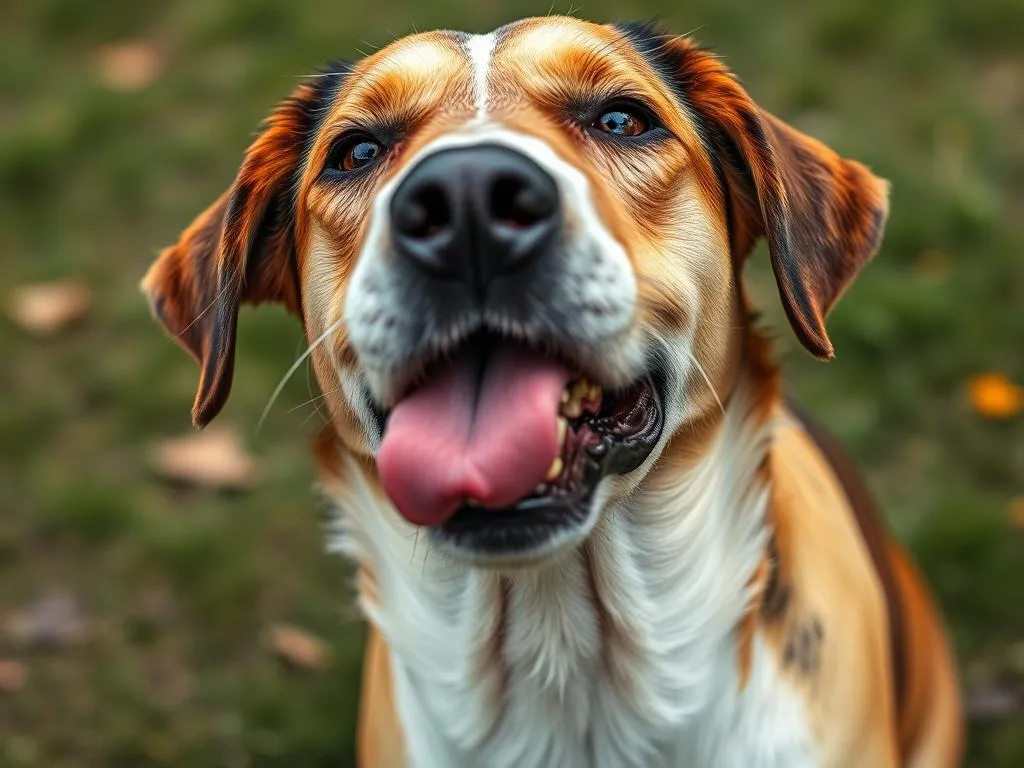
When your furry friend starts coughing, it can be a cause for concern. Dog coughing stuck throat is a common issue that pet owners may encounter, and understanding the underlying reasons is crucial for ensuring the health and well-being of your canine companion. In this post, we’ll delve into the various aspects of dog coughing, potential causes, symptoms of a stuck throat, and what to do if you find yourself in this situation.
Understanding Canine Coughing
What is Coughing in Dogs?
Coughing in dogs is a reflex action that helps clear the airways of irritants, mucus, or foreign objects. It can manifest in several ways, including:
- Dry cough: A non-productive cough that often sounds harsh or irritating.
- Wet cough: Accompanied by phlegm, this type often sounds more congested.
- Honking cough: Similar to a goose honk, usually associated with conditions like kennel cough.
Observing the type and frequency of your dog’s cough can provide vital clues about their health. It’s important to monitor any changes, as they can indicate underlying issues.
Common Causes of Coughing in Dogs
There are various reasons your dog might be coughing, including:
- Allergies: Environmental allergens can irritate your dog’s throat.
- Infections: Conditions such as kennel cough or pneumonia can lead to persistent coughing.
- Heart disease: Coughing can be a sign of heart issues, especially in older dogs.
- Foreign objects stuck in the throat: This is a significant concern and can lead to severe complications.
- Other medical conditions: Tumors, bronchitis, or other respiratory issues could also be at play.
Recognizing the Symptoms of a Stuck Throat
Signs Your Dog May Have Something Stuck
If your dog is coughing due to a foreign object lodged in their throat, you may notice specific signs, including:
- Persistent coughing and gagging: A repeated coughing fit or gagging can indicate something is trapped.
- Difficulty breathing or wheezing: Struggling to breathe is a serious sign that warrants immediate attention.
- Pawing at the mouth or throat: This behavior suggests your dog is trying to dislodge the object.
- Change in bark or vocalization: If your dog’s bark sounds different, it could indicate a blockage.
- Excessive drooling: Increased saliva production may occur as a result of irritation.
When to Seek Veterinary Help
It’s essential to monitor the duration and severity of your dog’s symptoms. Seek veterinary assistance if:
- Coughing persists for more than a few minutes without improvement.
- Your dog shows signs of distress, lethargy, or loss of appetite.
- Breathing difficulties arise, as timely intervention can be crucial.
What to Do If Your Dog is Coughing
Immediate Home Remedies
If your dog is coughing, start by assessing the situation calmly. Here are some immediate steps you can take:
- Calm your dog: Anxiety can exacerbate coughing, so provide a soothing environment.
- Encourage coughing: Gently pat your dog’s back to help expel anything stuck.
- Avoid putting fingers in the dog’s mouth: This can lead to further complications or injury.
When Home Remedies Fail
If your home remedies do not alleviate the coughing, it’s crucial to recognize when professional help is needed. Prepare for your vet visit by observing and noting:
- The frequency and duration of the cough.
- Any accompanying symptoms like lethargy or difficulty breathing.
- Recent activities that may have led to the coughing episode.
Diagnostic Procedures at the Vet
Initial Assessment
When you visit the vet, expect an initial assessment that includes a thorough physical examination. The vet will ask questions about your dog’s symptoms and medical history to gain insights into the issue.
Diagnostic Tests
To determine the cause of the coughing, your veterinarian may perform various diagnostic tests:
- X-rays: These can help identify foreign objects or underlying conditions affecting the lungs.
- Endoscopy: A minimally invasive procedure that allows the vet to visualize the throat and airways.
- Other tests: Blood work and allergy testing may be recommended to rule out infections or allergies.
Treatment Options for Dogs with Coughing Issues
Removing Foreign Objects
If a foreign object is identified, the vet will discuss the necessary procedures for removal. This may involve:
- Endoscopic retrieval: A less invasive method using a camera and tools to extract the object.
- Surgery: In severe cases, surgical intervention may be required.
While these procedures carry some risks, they are often necessary to ensure your dog’s safety and recovery.
Medical Treatments
Depending on the cause of the coughing, your vet may recommend several treatment options:
- Cough suppressants and expectorants: These medications can help manage the cough.
- Antibiotics: If an infection is present, antibiotics may be prescribed to help combat it.
- Treating underlying conditions: Addressing issues like heart disease with appropriate medications can improve your dog’s overall health.
Preventative Measures
General Health Tips for Dogs
Maintaining your dog’s overall health is crucial for preventing coughing and other ailments. Here are some key tips:
- Regular check-ups and vaccinations: Routine veterinary visits can help catch issues early.
- Balanced diet and exercise: A healthy lifestyle promotes a strong immune system.
Reducing the Risk of Coughing
To minimize the chances of your dog developing a cough, consider these preventative measures:
- Avoid exposure to allergens and irritants: Keep your dog’s environment clean and free from smoke, dust, and pollen.
- Regular grooming and hygiene: Bathing your dog and keeping their living area clean can help reduce allergens.
Conclusion
Understanding the implications of dog coughing stuck throat is vital for pet owners. By recognizing the types of coughs, identifying symptoms of a stuck throat, and knowing when to seek help, you can ensure your dog’s health and comfort. Regular veterinary check-ups, a clean environment, and a healthy lifestyle can significantly reduce the risk of coughing and other health issues.
Monitoring your dog’s health and being proactive can lead to a happier, healthier life for your furry friend. If you notice any concerning symptoms, don’t hesitate to contact your veterinarian for guidance and support.









